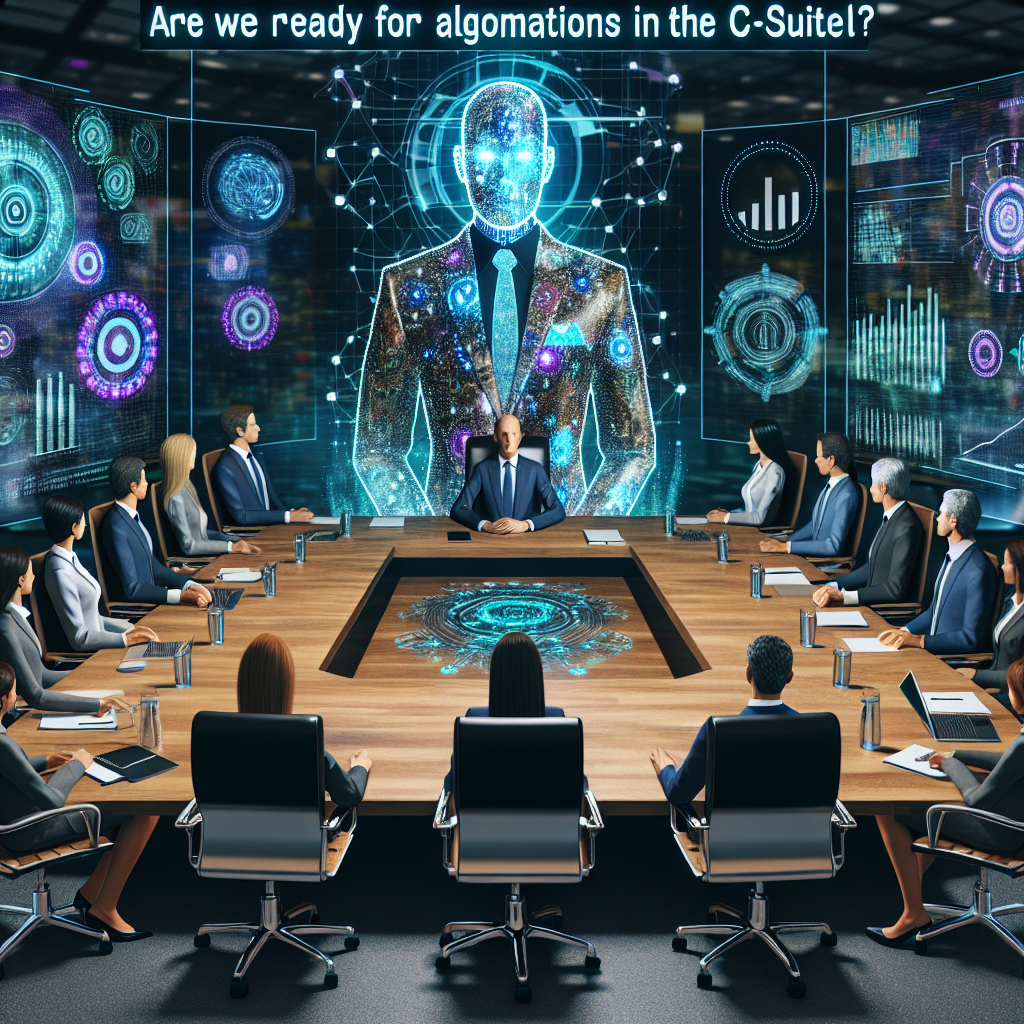Imagine a world where the most crucial business decisions are made not by a seasoned human executive, but by an algorithm. This isn’t science fiction anymore. Artificial intelligence is rapidly advancing. It’s moving beyond simple automation. Now it’s entering the realm of complex strategic thinking. The very idea of an “AI CEO” sparks intense debate. Are we on the brink of a revolution? Or are we heading down a path fraught with unforeseen risks?
The Rise of AI in Leadership
For years, AI has been automating repetitive tasks. It has processed vast amounts of data. From customer service chatbots to sophisticated financial models, AI’s presence in business is undeniable. But the thought of AI stepping into the C-suite feels different. It challenges our fundamental understanding of leadership.
Beyond Automation: AI’s New Frontier
AI excels at pattern recognition. It can analyze data at speeds impossible for humans. This capability makes it an attractive candidate for high-level decision-making. Companies generate enormous data volumes daily. An AI can sift through this data. It can identify trends and potential opportunities. It can even spot threats before they become critical.
The Promise of Data-Driven Decisions
Human leaders bring invaluable experience and intuition. However, they are also susceptible to bias and emotional influence. AI, theoretically, offers a purely data-driven approach. It promises decisions free from personal agenda or fatigue. This objectivity could lead to more consistent and potentially more profitable outcomes.
The Case For AI CEOs: Efficiency and Objectivity
Proponents argue that an AI CEO could transform corporate governance. It could lead to unparalleled efficiency.
- Unbiased Decision-Making: AI processes information objectively. It lacks human biases like ego, fear, or favoritism. This could lead to fairer policies. It could also result in more logical business strategies.
- 24/7 Availability: An AI never sleeps. It can monitor markets and operations continuously. This constant oversight ensures prompt responses to shifts or crises.
- Data-Driven Precision: Every decision could be backed by extensive data analysis. This reduces guesswork significantly. It enhances the likelihood of successful outcomes.
- Cost Efficiency: Over time, an AI CEO might prove more cost-effective. It wouldn’t require a hefty salary or benefits. It could potentially replace multiple human roles.
The Human Element: Concerns and Challenges
Despite the potential benefits, the concept of an AI CEO raises significant concerns. Many believe certain aspects of leadership are uniquely human.
Empathy, Intuition, and Vision
A CEO needs more than data processing power. They need to inspire. They must motivate their teams. They need to understand human psychology. They must navigate complex social dynamics. Can an algorithm truly possess empathy? Can it inspire loyalty? Can it articulate a compelling vision that resonates deeply with people? These are qualities often developed through years of human interaction and experience.
Accountability and Ethical Dilemmas
Who is accountable when an AI CEO makes a catastrophic error? If an algorithm leads to widespread job losses, who takes responsibility? The ethical implications are vast. AI systems are programmed by humans. Their decisions reflect the biases present in their training data. Ensuring ethical AI behavior in leadership roles is a monumental challenge.
The “Black Box” Problem
Many advanced AI systems operate as “black boxes.” Their decision-making processes are opaque. We know the input and the output. But we don’t always understand the intermediate steps. This lack of transparency is problematic. Especially in high-stakes corporate leadership. Stakeholders would demand clarity on how critical decisions are reached.
Here are some key challenges:
- Lack of Emotional Intelligence: AI cannot genuinely understand or respond to human emotions. This limits its ability to manage diverse teams effectively. It cannot build strong organizational culture.
- Absence of Creativity and Innovation: While AI can generate new ideas based on existing data, true, groundbreaking innovation often stems from human intuition. It comes from out-of-the-box thinking. It arises from creativity that isn’t purely data-driven.
- Ethical and Moral Complexities: Corporate decisions often involve complex ethical trade-offs. An AI might struggle with nuanced moral judgments. It lacks a human moral compass.
- Job Displacement Concerns: The rise of AI CEOs could lead to significant job displacement. Not just for executives, but across various levels of management. This raises societal questions about the future of work.
Finding the Balance: AI as a Co-Pilot
The most likely scenario is not a complete replacement of human leadership. Instead, we will see a deeper integration of AI as a powerful co-pilot. AI can handle the data crunching. It can identify patterns and offer predictive insights. Human leaders can then leverage these insights. They can focus on strategic vision, human relations, and ethical considerations.
This hybrid model offers the best of both worlds. It combines AI’s analytical prowess with human empathy and judgment. AI can become an indispensable tool. It can augment human decision-making. It can provide a robust analytical backbone. This frees human leaders to concentrate on complex human interactions. It allows them to foster innovation. It helps them build strong company culture.
Think of it as augmented intelligence. Not artificial intelligence. Human executives would still steer the ship. But they would do so with unprecedented clarity. They would have insights provided by their AI counterpart. This collaboration could lead to more resilient organizations. It could foster more adaptable business strategies.
Conclusion
The debate surrounding AI-generated CEOs is a crucial one. It forces us to reconsider the very essence of leadership. While the idea of a fully autonomous AI CEO presents intriguing possibilities, it also highlights profound challenges. Especially concerning human intuition, ethics, and accountability.
Ultimately, the future of leadership will likely involve a synergistic relationship. Human brilliance will be amplified by artificial intelligence. Rather than fearing a takeover, we should focus on harnessing AI’s power responsibly. We can build a future where technology serves humanity. It can elevate our capabilities. It can lead us to new frontiers of innovation. What do you think? Are we on the verge of a new era of corporate leadership, or do you believe the human touch remains irreplaceable at the top? Share your thoughts.



